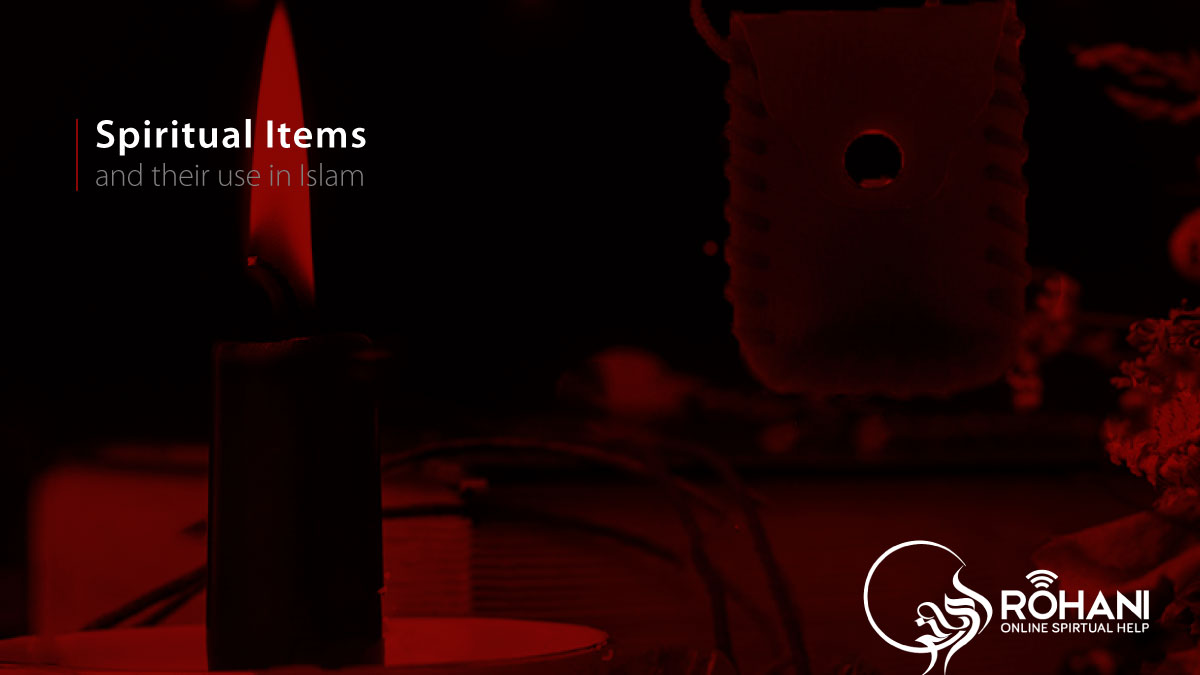Is Using Djinn, Khodam, and MuwakilIs Forbidden In Islam?
December 25, 2020Do I have Black Magic and Need Spiritual Healing/Ruhani ilaj?
December 26, 2020
There is a great division among Muslims when it comes to using spiritual items for purposes of healing or any other material and spiritual goals in life. What makes me sad sometimes is the fact that most people choose not to think.
Those who accept and those who don’t aren’t doing so based on their understanding of the matter but based on what someone tells them or how they observe other people’s stance on the issue. Such people need to think that the intellect — which is the greeted gift from Allah — isn’t meant to be spoiled. When we completely depend on others’ opinions or beliefs in accepting something, we are subconsciously limiting the thinking ability of our own minds. And if we exercised such an approach long enough, we may as well have rickets of the mind. So it’s necessary to question, think, and make sense of the beautiful teachings Islam has rendered us.
I would jump straight into the heart of this topic and explain why and why not carrying a spiritual item is a matter of contention from an Islamic perspective. One thing is clear that there is nothing inherently wrong with the concept of spiritual items or else we wouldn’t have Quranic stories describing in detail about miracles various prophets carried out with the help of the spiritual items God gifted them with — e.g. the ring of Solomon (A.S) or the staff of Moses (A.S.).
When we try to establish the religious validity and lawfulness of spiritual items, we need to keep in mind two essential criteria: the intention behind a spiritual item and the source of its occult/spiritual power.
In other words, what is the talisman being made for? Is it being used for bad purposes such as:
- To cause harm and wreak havoc on the life of an innocent percent?
- To satiate some material greeds?
- To indulge in an unethical and unlawful relationship with someone?
- To achieve something that can only be achieved through genuine efforts and hard work?
- To take revenge on an enemy with respect to some worldly affairs?
- To express your hate on someone and cause harm out of jealousy?
Or is it being used for good purposes such as:
- To heal someone who’s suffering from a spiritual or physical disease
To help a person fulfill some worthy goals in life (that are unlikely to be attained through sheer hard work) - To help improve a person’s luck in general matters of life.
- To help someone improve their spirituality and get closer to God
- To help people get protected from spiritual attacks
You can add many other goals to the list. The point is, whatever goal you choose to accomplish with the help of a roohani item has to be in line with Islamic laws. It shouldn’t be harmful, unholy, or evil in any way — whether expressed or intended.
Here another question arises: what sources of spiritual/occult power should be considered? Is it okay to achieve rightful goals through shady spiritual methods? Or would using the right/holy spiritual methods to achieve ill-intended goals strike some balance or lessen the gravity of the problem. The answer is a straight “NO”. You can’t use the right spiritual methods to achieve the wrong goals. Nor can you use shady methods to legitimate goals. It’s important for the goals and the methods one uses to achieve them to be in perfect harmony.
For example, it’s not lawful in Islam to perform black magic regardless of what your intentions are. Black magic is unIslamic and there are strict admonishments for whoever indulges in or is connected with the occult art of black magic. Any spiritual item that draws its occult power from a black magic source is forbidden and one should never consider owning it to avoid detrimental spiritual consequences in the later stage. Similarly, it’s not allowed for anyone to lure a spiritual practitioner into creating a spiritual item that will be misused (to achieve ill-intended goals). When that happens (without the knowledge of the spiritual practitioner/amil), the responsibility of the burden will mostly go to the owner of the spiritual item. There will be unprecedented consequences from which it’ll be very difficult to pull out.
Now that I have explained the matter in a religious context, I’m hoping my readers would make it a point to look at the problem from the standpoint of Islamic principles. I hope that their prima facie judgement wouldn’t be on the spiritual item itself but on the methods that went into its making or the goals it’s intended to serve. As and when they found that the methods are Islamic and the goals are just, they shouldn’t feel the need to raise further questions on the admissibility of a spiritual item.
All my spiritual/roohani items are made with the aforementioned criteria in mind. My method is purely Islamic and drawn from prophetic traditions. I use amliyat, supplications, and rituals that are rooted in Quranic verses and the sharia law. As a result, people who come to me for guidance always find it extremely helpful when they get a spiritual item from me that’s prepared with utmost care and according to their specific needs and rightful goals.


